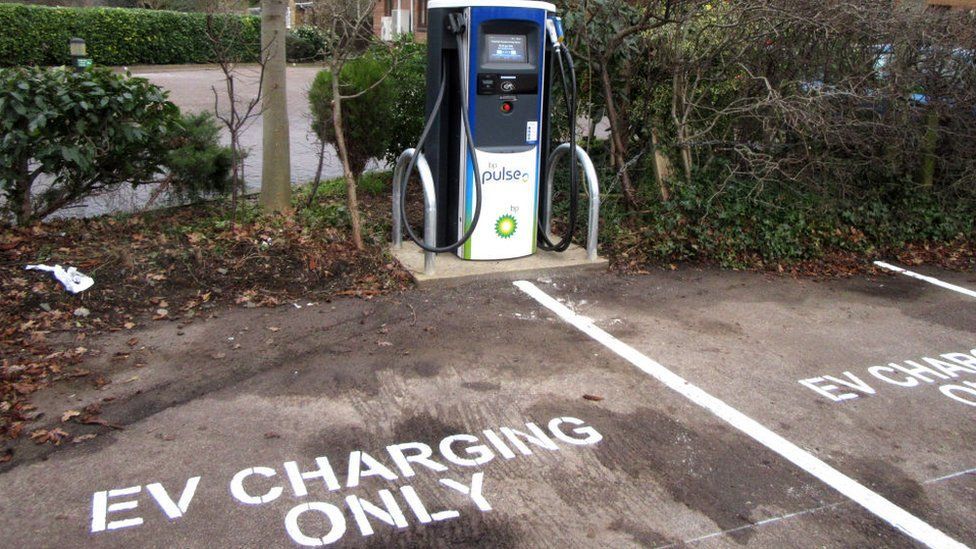
Carry on flying, says government green plan
Ministers say new technology will allow domestic flights to be emissions-free by 2040, and international aviation to be zero carbon by mid century.
The policy has been ridiculed by environmentalists who say the government is putting far too much faith in innovation.
They say demand for flying and driving must be curbed if the UK is to meet its ambitious climate targets.
The aviation proposal is contained in the government’s "Transport Decarbonisation Strategy" - part of its master plan for the entire economy to be virtually zero carbon by mid century.
When Boris Johnson hosts the Glasgow climate summit in November, he'll need policies in place to prove to other nations how carbon cuts can be achieved.
Lorries to be zero-carbon by 2040
The transport plan says all new lorries will be zero-carbon by 2040, running on batteries or hydrogen under a world-leading UK policy.
A recent study showed that trucks accounted for 2% of vehicles in the EU but 22% of road transport emissions.
The plan says petrol and diesel cars will become more efficient within the decade, and manufacturers will face targets for the electric vehicles they sell.
Electric cars will have smart charging that interacts with the power grid enabling drivers to top up when there’s plenty of cheap renewable energy.
Critics say that while the strategy is ambitious in some respects, it is not credible overall. They blame the government for continuing polluting activities such as:
* Building roads and HS2, which add emissions from making tarmac and concrete
* Allowing the cost of driving to fall and the cost of rail to rise
* Permitting car-dependent housing developments
* Encouraging the boom in large SUVs
The critics say the strategy won’t reduce emissions fast enough - especially in the light of the extraordinary US heatwaves, which have prompted fears that dangerous climate shifts may already be underway.

Transport is the UK’s biggest emissions source and the Department for Transport has been criticised for doing too little to reduce CO2.
That’s partly because so many transport issues involve difficult political choices, with ministers fearing public resistance.
The Transport Secretary Grant Shapps said: “Decarbonisation is not about stopping people doing things, it’s about doing the same things differently."
A former pilot, Mr Shapps added that the plan will mean using sustainable fuel for aircraft and more zero-emission cars.
The government has also been discussing a proposal to work with employers on “Commute Zero” - a project which could encourage more lift-sharing and working from home.
Ministers have also agreed that the whole central government fleet of 40,000 cars and vans should be fully zero-emission by 2027.
Edmund King, AA president, broadly backed the strategy and said that drivers "do care about decarbonisation".
“Even by 2027 it is estimated that electric cars will outsell new petrol and diesel cars,” Mr King added.
But it looks as though difficult issues have been kicked down the road.

Some aviation experts, for instance, are not convinced that long-haul planes can be cleaned up by 2050.
The advisory Climate Change Committee has warned that aviation growth must be curtailed because emissions need to be cut before that date – not after.
Greg Archer, from the green group Transport and Environment, said: “The government must level with the public that to avoid dangerous climate change there will have to be fewer cars, less driving and many fewer flights.”
'We need coherent steps'
Chris Todd from Transport Action Network said: "We need coherent steps not contradictory actions."
Mr Todd added that "after decades of dither and delay" in cutting transport emissions, the Department for Transport "remains unable to face up to the facts or take hard choices".
Building bigger roads for bigger cars - even if they are electric - still has a "major carbon cost for construction and manufacturing," he said.
One hard choice is how to raise tax when the car fleet shifts to electricity.
It’s not clear yet how the Treasury will fill the looming hole in its coffers when it loses more than £30bn a year currently collected through fuel taxes on conventional cars.
A pay-as-you-drive tax has been rumoured, but a spokeswoman told BBC News: “At present we have no intention to introduce road pricing."
As we transition to decarbonised motoring, the spokeswoman said the government will need to ensure revenue from motoring taxes keeps pace with the change to continually fund public services and infrastructure.
She also said there were no plans for a frequent flyer levy. She continued: “We will continue to work across government and with industry, through the Jet Zero Council and other forums, to ensure delivery of Jet Zero (zero emissions from aviation) remains on track.”
The spokeswoman said government plans will build on the significant increase in the number of people cycling during the pandemic.
The strategy would set out a comprehensive, long-term vision to increase active travel and embed the benefits of walking and cycling.
'Barely worth the wait'
Kerry McCarthy MP, Labour’s Shadow Minister said: “This plan has been a long time coming, but it was barely worth the wait."
"The government is still stalling when it comes to the tough decisions needed," she added, citing the rise in rail fares and the cut in plug-in car grants.
“At a time when we should be showing global leadership and pressing ahead with this agenda, it's clear ministers still have a long way to go.”










